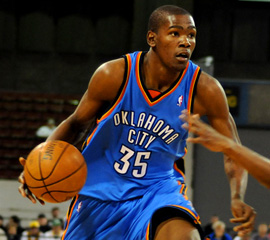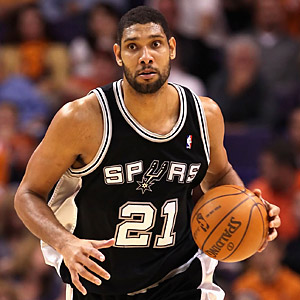 As the Memphis Grizzlies and Cleveland Cavaliers completed a deal Tuesday that will send three players and a future first-round draft pick to Cleveland in exchange for forward/perennial D-Leaguer Jon Leuer, we must all become more aware of the bigger picture at stake.
As the Memphis Grizzlies and Cleveland Cavaliers completed a deal Tuesday that will send three players and a future first-round draft pick to Cleveland in exchange for forward/perennial D-Leaguer Jon Leuer, we must all become more aware of the bigger picture at stake.
The clock is expiring on the NBA’s practical, dollar-for-dollar luxury tax era.
The rules are changing, and these deals will become more of the norm than the exception.
It appears as if Cavaliers GM Chris Grant fleeced the Grizzlies for a formidable big man, Marreese Speights, and rotation guards Josh Selby and Wayne Ellington with a protected first-round pick to boot. Sheridan called it a heist, with some bandit art thrown in.
But as you peal off the layers, it becomes obvious that this was a business decision by Memphis, a move that shed $6 million in salary in order to get under the luxury tax threshold.
Memphis’s new ownership has been reevaluating its business model and working hard on a contingency plan to reduce salary. In the short-term, this trade will allow them to keep Rudy Gay and Zach Randolph on the books for a playoff run this year. In the long-term, this is just the first step to not becoming a perennial tax team.
Between Gay, Randolph, Marc Gasol and Mike Conley, the Grizzlies owe nearly $59 million next year. The league salary cap set to kick in July 2013 will be around $60 million, and a harsher luxury tax penalty will begin.
Details on that below.
Simply put, somebody had to go.
To the basketball mind, this does not make a lot of sense. Memphis is one of the few teams on the cusp of an NBA title run. Currently the NBA’s second-ranked defense, they bring an unparalleled intensity to the table in an offensively driven Western Conference. Breaking up their core-four (or Tony Allen) would likely strip any chance Memphis has at a title run in the immediate future .
It’s no secret that the NBA is a copycat league. As everybody works towards the same goal it becomes apparent over time that certain models are going to work better than others. When one formula works, you’ll find many others trying to mimic it in the hopes of the same success.

 Many believe that there are currently two different successful NBA formulas being emulated right now.
Many believe that there are currently two different successful NBA formulas being emulated right now.
There is a long-term model which consists of building through the draft, getting a lucky ping-pong bounce and landing a Hall of Famer – or two – as the San Antonio Spurs and Oklahoma City Thunder have done, then filling in the rest of the puzzle with complimentary role players and veterans.
The short-term, superstar triumvirate model is the most recent archetype of NBA success recently defined by the Boston Celtics in 2007.
The Heat, Knicks, Clippers, Nets and Lakers have since tried to replicate that success by pairing a triad of stars together in hopes of competing for a title instantaneously.
If a team is currently not navigating down one of these two paths, they’re stuck in NBA purgatory, circling the block until they can definitively program their Garmin GPS. The Grizzlies are just that, a nitty-gritty team laden with a nice core of sub-stars with a small window for success because they were caught in-between models.
Memphis landed Rudy Gay and Mike Conley through the draft and brought in Marc Gasol and Zach Randolph via trades and free agency. All have developed into good-but-not-great players with superstar price tags.
Like Memphis, all teams will have to reevaluate their business models to avoid the luxury tax, unless of course they have an owner with Prokhorovian deep pockets or are a perennial title contender.
Since the luxury tax was introduced in the 1999 collective bargaining agreement, the dollar-for-dollar tax system allowed the rich to conquer.
Hello to all, how is everything, I think every one is getting more from this website,
and your views are pleasant for new people.
You did a great job of laying out the landscape of the “new” NBA. It is kind of sad to think that less teams will have the opportunity to compete unless they have really deep pockets. The same teams will continue to spend, while the rest will continue to trade guys to get under the cap. It is a vicious cycle that needs to be figured out so there can be more parody in the league.
Thank you, and I do agree with your opinion that it is more about perception than reality. That is the problem Memphis is facing right now. Yes, Gasol-Conely-Gay-Randolph are all excellent players but are currently being paid at star level maxing out their roster/cap flexibility. They will be a tough out in the playoffs nonetheless.
Good analysis and all true………but…………the Griz dont have sub-elite players. Zach Randolph is arguably as good a four as any in the league. Who is better? Kevin Love….I dont think so, Aldridge….not close………pau, not any more………al horeford is close…underrated….buy Zbo is elite. Conley is woefully underrated. Gay however is that danny granger level guy who invariably does get over paid. Thats the problem in memphis. Indiana over paid Hibbert….but at least hibbert is 7 2″. I think the perception is wrong because memphis is a defense first team. People dont appreciate Conley because his real strength is defense. No, he isnt Kyrie Irving, but you could argue he’s as good as Rondo. And Marc Gasol is as good as any big right now. Chandler is probably better on the whole, Lopez is still better offensively, but not close on defense. Howard is just a pain in the neck. Gortat is good, but not as good as Gasol. So really, its not sub elite, its just a team of defenders. Denver is another example. No super stars…BUT they have depth and Iguodala and Galinari…..both close to elite….and Faried who is rapidly becoming all star level. Lawson is good, not great. But put them altogether and denver is a legit contender. The marketing of this league is about stars, but its more perception than reality.